By Greg Wagman
Maybe the Turks were just bad at picking the winning side. In World War I the Central Powers were defeated by the Allies, so in October 1939 they switched to ally with Britain and France. Four days after the fall of Paris, Turkish President Ismet Inönü suspected his country might be on the wrong side yet again. To rectify the situation, he signed the German-Turkish Treaty of Friendship, setting the terms for Turkey’s indefinite neutrality.
While the major world powers mauled each other for five years, Inönü tactfully resisted the invitations of both sides to enter the conflict. British Prime Minister Winston Churchill took a particularly aggressive interest in luring Turkey to the Allied camp. Why did Churchill exhaust so much diplomatic and economic effort on the Turks? After the war had ended, the prime minister conjured myriad reasons for wanting Turkey’s help, but declassified War Cabinet documents tell a different story. The truth Churchill strove to bury was that he needed Turkey’s support, either directly or indirectly, for a planned invasion of the Balkans.
A Military Unprepared For War
At first glance, Ismet Inönü might not appear as the shrewdest, most clever leader to serve during World War II. Those who met him would describe the president of Turkey as a small, wiry man with a soft voice. For a man his size, he had large shoes to fill. The first president of the young Turkish Republic, the revered Mustafa Kemal Atatürk, died just 10 months before the outbreak of World War II. His death left Ismet Inönü, Atatürk’s chief lieutenant, to lead the fledgling republic in a time of international uncertainty.
Although no one could have foreseen the scope of the looming war, Inönü was a sound choice for president. He spoke German, English, and French and had served in the Turkish military for 17 years, rising from lieutenant to general. As a successful commander, he was elevated to War Ministry adviser and then prime minister in 1923. It was June 11, 1940, when Ismet Inönü finally found himself president. His experience told him that the Turkish military was in no condition for serious combat, and this was most likely the primary motivation for Turkey’s withdrawal into neutrality. As soon as Hitler attacked the Soviet Union, Inönü consistently maintained that Germany would never win the war. It was more for pragmatic purposes that he steadfastly kept Turkey a neutral party.
Not long after Turkey declared neutrality, both the Axis and Allied camps made overtures to lure the Turks to their respective sides. From the beginning, Winston Churchill spearheaded the Allied effort to buy Turkey’s loyalty. As early as the fall of 1941, U.S. Secretary of State Cordell Hull reassured British Ambassador Lord Halifax that the British would be allowed to take the lead in negotiating with Ankara. Allied shipments of war matériel to Turkey began immediately, but Churchill strictly controlled the flow of equipment to ensure it would only be enough for defensive purposes. If German military fortunes appeared to wane, Churchill foresaw increased aid to the Turks as the best way to encourage them into the Allied camp.
Churchill’s Overtures to Turkey
In January 1943, Churchill and U.S. President Franklin D. Roosevelt met at Casablanca and outlined the future of Allied grand strategy. American and British staffs clashed throughout the week, but it was the British “Mediterranean strategy” that carried the day. The British vision called for an invasion of Italy supported by more aggressive attempts to draw Turkey into the war. Churchill suggested that this might best be accomplished by a personal meeting with the Turkish leadership on Turkish soil.
That meeting took place at Adana, Turkey, over the last two days of January 1943. On the first day of the meeting, Marshal Fevzi Cakmak, the Turkish chief of the General Staff, outlined the necessary equipment for his military to be combat-ready. The enormous quantities of equipment included 2,300 tanks, 2,600 guns, and 120,000 tons of aviation fuel. Cakmak also requested trucks, other motor transport, and locomotives complete with coal. As the stunned British delegation took notes, Marshal Cakmak chided the British for not filling his standing request for 500 fighter planes.
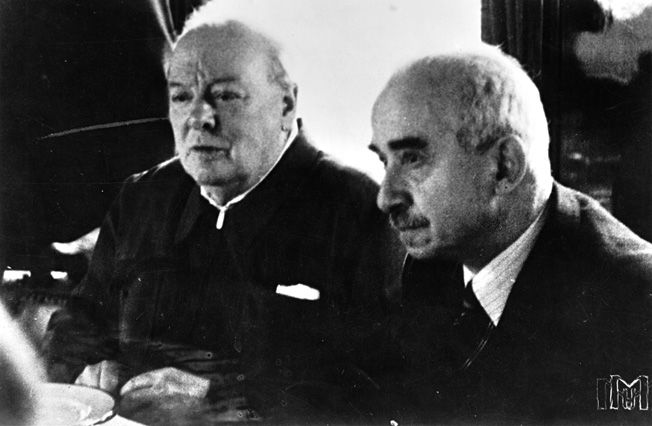
In his meeting with President Inönü, Churchill agreed to increase Allied supplies to Turkey. In return, Inönü promised nothing more than to reconsider Turkish neutrality. When Churchill inquired about the possibility of Allied air bases in Turkey, Inönü again made no assurances. As long as Axis forces were positioned in Bulgaria, they could threaten Istanbul, the economic center of Turkey. Until this threat was removed or more military assistance was received, the Turks would remain neutral. Remarkably, two days after the Adana Conference Churchill cabled President Roosevelt to report that his visit to Turkey was a “great success.” Unbeknownst to his American allies, Churchill had a very good and very secretive reason to expend so much diplomatic and economic effort to draw Turkey into the war.
“Our Thrust Should be Directed Against the Balkans”
Even as Allied war planners were polishing final details for their invasion of Sicily, British planners were plotting the next move. At Casablanca the Western Allies had agreed to capture Sicily, but the strategic debate was so contentious that no further targets could be agreed upon. No doubt, American Chief of Staff General George C. Marshall was hoping that after the fall of Sicily Allied attention would turn back toward the liberation of France. But as early as Christmas 1942, a month before Casablanca, the British War Cabinet was drafting other plans.
In early December 1942, the War Cabinet printed a secret report titled “Offensive Strategy in the Mediterranean,” which concluded that after successful operations in Italy, “our next thrust should be directed against the Balkans.” Less than a week after issuing the report, the British Joint Planning Staff ordered its Future Planning Section to “examine and report” on the possibility of a Balkan invasion.
Churchill kept close tabs on the reports coming from his War Cabinet. From the beginning he was fully supportive of future operations in the Balkans. During his meeting with President Inönü at Adana, Churchill handed his Turkish counterpart a note called “Morning Thoughts.” The notes hinted that Inönü should face “the possibility of Turkey becoming a full belligerent….” A copy of Churchill’s “Morning Thoughts” filtered back to Washington, alarming Roosevelt and American military planners. The British ambassador, Lord Halifax, tactfully explained to Roosevelt that the memo only represented Churchill’s private opinions and was not written with the consent of the War Cabinet.

With access to declassified War Cabinet documents, it is safe to say that Lord Halifax may not have been entirely forthcoming. By the time Churchill’s “Morning Thoughts” were written, the prime minister would have already had access to War Cabinet directives calling for the preliminary planning for an invasion along the Adriatic coast of the Balkans. Further planning kicked into high gear after the successful conquest of Sicily and the follow-up invasion of the Italian mainland. The Americans were not made privy to this planning process.
A Plan to Take the Aegean
With U.S. and British forces slugging through the mountains of Italy, Churchill’s attention turned toward the Aegean islands. Some historians have suggested that this was just another case of the prime minister’s fertile strategic imagination getting the best of him. But was this really the case, or did Churchill have something else on his mind when he envisioned the capture of the Aegean islands? What we know for certain is that Churchill and Roosevelt exchanged a series of cables discussing the capture of Rhodes and other German-garrisoned islands in the Aegean Sea.
Despite the prime minister’s persistent and increasingly blunt messages, Roosevelt steadfastly refused to divert any forces from the campaign raging in Italy. Perhaps when Churchill was pleading for operations in the Aegean he was recalling a War Cabinet report from December 5, 1942. The report recommended an attack into the Balkans but cautioned that it would not be possible “unless either Turkey comes into the war or Italy goes out of it.”
By October 1943, just when Churchill and Roosevelt were arguing over operations in the Aegean, American war planners were growing ever more suspicious that the British were scheming for a Balkan invasion. In fact, on October 8, 1943, Roosevelt hinted at this when he cabled Churchill. “As I see it, it is not merely the capture of Rhodes but it must mean the necessity and it must be apparent to the Germans, that we intend to go further.… Strategically, if we get the Aegean Islands, I ask myself where do we go from there…?”
Churchill frantically cabled back reassuring messages, promising Roosevelt that he was not asking for a full invasion but only for commando operations. It was too little, too late. The damage had already been done. Roosevelt and his military advisers felt they had sniffed out Churchill’s intentions, but they would have been even more alarmed had they known just how evolved the British invasion plan had become.
To Establish an “Adriatic Bridgehead”
Churchill may have been telling Roosevelt that he did not wish for a land invasion, but back in London the Joint Planning Committee had been refining an invasion plan since 1942. In May 1943, they completed a preliminary investigation of an invasion along the coast of Yugoslavia, but the only possible land bases from which the invasion could be launched were in Turkey. Launching an attack from across the Bosporus, British forces would sweep down to liberate Greece and then move north. Without the necessary Turkish support, this plan was temporarily set aside.
By the fall of 1943, however, the Allied advance in Italy opened up ports across the heel of the Italian boot. Invasion plans for Yugoslavia were dusted off and again revised. On November 8, 1943, the War Cabinet unveiled its most detailed set of plans to establish a bridgehead in Albania, titled “Adriatic Bridgehead.” This time, the attack would not come from across the Bosporus, but from across the Adriatic Sea. The primary goal of the invasion was to topple the already unstable pro-German government in Bulgaria and then encourage a domino effect across the Balkans.
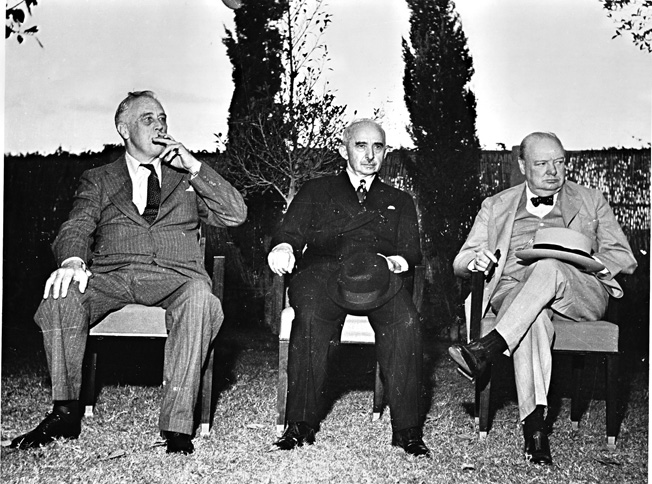
The most pressing concern was to locate a suitable site for the bridgehead. Beaches along the coast of Yugoslavia were not deemed suitable for a large enough force, but Durazzo Bay in Albania could handle roughly 2,000 tons of shipping per day. More importantly, the Durazzo beachhead provided access to much needed airfields. There was a landing ground next to the bay, and larger airfields at Tirana and Valona would be within striking distance. Until these airfields were operational, fighter cover from Foggia in Italy was deemed sufficient.
There was another key advantage to picking Albania over Yugoslavia. The report concluded, “The nature of the country and communications [in Yugoslavia] would make the German task of sealing off the bridgehead easier than in Albania.” Furthermore, a bridgehead in Albania would be better positioned to threaten the Bulgars or to move south to liberate the Greeks. In Yugoslavia, any landing force would have to rely on help from the partisans, who were of an unproven quality.
The tactical details of the operation called for two divisions to assault in the first wave. The northernmost division would land north of the Tirana road junction and secure the port and landing ground at Durazzo. The second division, landing south of the road, would immediately strike inland to capture Tirana. Once the beachhead was secure, a third division and the 1st Special Service Force were both earmarked for support. Naval and air support were to be made available from Italy.
The British Joint Planning Committee report acknowledged that the necessary landing craft for the operation would have to be drawn from Operation Overlord, possibly delaying the invasion of Normandy for up to three months. The Americans were bound to dislike any further delays.
Despite the concerns of the War Cabinet, a rich bounty of tempting prizes seemed ripe for the picking in the Balkans. First, the British knew that Bulgaria’s government was teetering on the verge of switching sides. Axis satellites across the region could fall in a domino effect, knocking out Bulgaria, Romania, Hungary, or Croatia. Capture of the Balkans would also stretch German manpower ever thinner and deprive the German war economy of critical resources such as chromite, oil, copper, and bauxite. Chromite ore was of particular concern to the German war effort, since it is essential to steel production. With domestic stocks of chromite ore depleted, Germany now relied solely on two main sources, the Balkans and Turkey.
The United States, Britain, and the Soviet Union all protested Turkey’s double game in feeding the enemy war industry. Privately, Turkish diplomats assured the Allies that they were secretly delaying shipments of chromite to the Germans. Whether this was actually true is debatable. What was undoubtedly true was that Turkey profited handsomely from its trade with Nazi Germany. In return for chromite, the Germans supplied Turkey with more military equipment.
The Tehran Conference Ends Churchill’s Schemes
Despite the lack of cooperation from Turkey, Churchill refused to give up on the invasion of the Balkans. Churchill decided to carry his case to Soviet Premier Josef Stalin at the Tehran Conference in November 1943. The week before the meeting he authored a memorandum calling for the British to “seize a port or ports and establish bridgeheads on the Dalmatian coast….” Before the memo could be cabled to Washington, Field Marshal Alan Brooke, chief of the Imperial Staff, advised the prime minister to strike any reference to the Balkans for fear of alarming the Americans before the meeting at Tehran. Churchill allowed the line to be struck but personally resolved to bring up the issue at the conference.
In November 1943, Roosevelt, Churchill, and Stalin met face to face for the first time. On the very first day of the Tehran Conference, November 28, Churchill summoned all of his charisma to present Stalin with the Balkan option to ease pressure on the Eastern Front. Roosevelt had not expected the British prime minister to break ranks with him and was at first surprised. Stalin had long since suspected that the British might try to cross the Adriatic, an area Stalin already considered in his sphere of influence.
Now it was Stalin’s turn to surprise Churchill. The Soviet dictator adamantly insisted that the Allies stick to their preparations for Overlord along with a diversionary attack through southern France. In the Mediterranean, including in Italy, he wished no offensive action to be taken. Stalin then turned his attention to Turkey, Churchill’s pet project, and expressed his opinion that Turkey was a lost cause. Now that the war was beginning to swing against the Axis, he saw no point in continuing to pamper Ankara with attention.
Increasing Allied Pressure on Turkish Neutrality
By December 1943, an invasion of the Balkans was no longer a serious option. Without landing craft from Overlord there would be no way to land the amphibious invasion force. And without Turkey’s entry into the war, the invasion could not be launched from across the Bosporus. To make matters worse, not only did Churchill face opposition from Stalin and Roosevelt, he now faced internal opposition from Chief of Staff Alan Brooke. Brooke correctly analyzed the report from the War Cabinet and noted that any exploitation of the Adriatic bridgehead would take roughly eight divisions.
With his hopes of further Mediterranean action dashed, Churchill abruptly ended his courtship of Turkey. Military and economic aid was reduced to a trickle, and blunt language began to replace once kind words of encouragement to Ankara. When the Turkish General Staff asked why its requests for equipment had not been fulfilled completely, one British general quipped that it would have clogged Turkey’s inadequate rail network for years. The British then demanded to know why Turkey had not yet joined the Allies, to which the Turks shot back that 26 Axis divisions were in position to attack Istanbul from bases in Bulgaria.
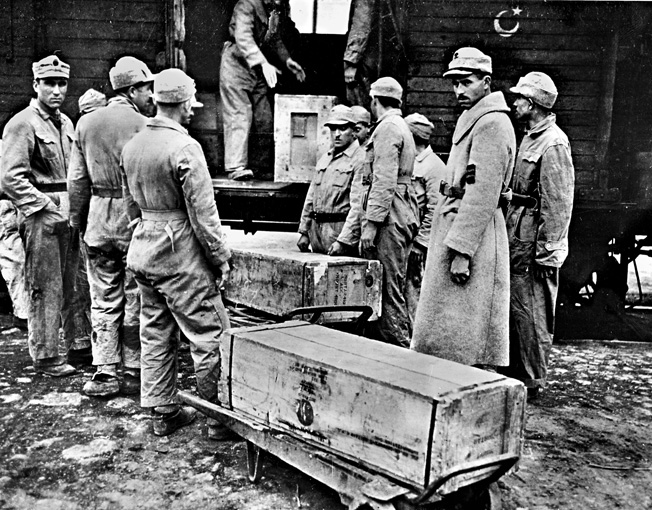
Not long after the conference the British telegraphed a secret note to Washington reporting that the Turks “insist their original demands for equipment can be reduced neither in quantity nor in quality and must be accepted in total before our treaty rights can be discussed.” This was the straw that broke the camel’s back. In no uncertain terms, U.S. and British diplomats told Turkey to end its trade with Germany immediately. The British ambassador to Ankara was instructed to report that if Turkey did not cooperate with Allied demands aid would be cut off and the Western Allies would remain silent if Stalin made postwar demands on territory around the Dardanelles.
By early 1944, President Inönü must have realized that his double game would have to end. He never doubted that Germany would lose the war but was now faced with the rising power of his Soviet neighbor. On April 14, 1944, the Turkish National Assembly finally suspended commodity exports to Germany. Ankara severed all diplomatic relations with Berlin four months later. The Allies handed Turkey an ultimatum to declare war on Germany by March 1, 1945, if the Turks wanted a seat in the future United Nations. Just days before the ultimatum expired, Turkey finally entered the war on the Allied side. It was merely a token gesture of good faith.
Churchill’s Balkan Regrets
After the success of Operation Overlord was apparent, Churchill did everything in his power to distance himself from the Balkan invasion plans. In his memoirs the former prime minister censored and altered key pieces of evidence to make it appear he had always been a strong proponent of the Normandy invasion. The truth was that Churchill had long expressed private reservations about the invasion of France. He gloomily noted to one adviser in April 1944, “This battle [in Normandy] has been forced upon us by the Russians and by the U.S. military authorities.”
In his postwar writing Churchill bitterly maintained that if only Roosevelt had allowed him to capture the Dodecanese islands, Turkey could have been tipped into the war. This was quite unlikely since official British policy was for the islands to be returned to Greece, not Turkey. What Churchill could never admit in his memoirs was that he secretly needed Turkey’s support to allow a British invasion of the Balkans.
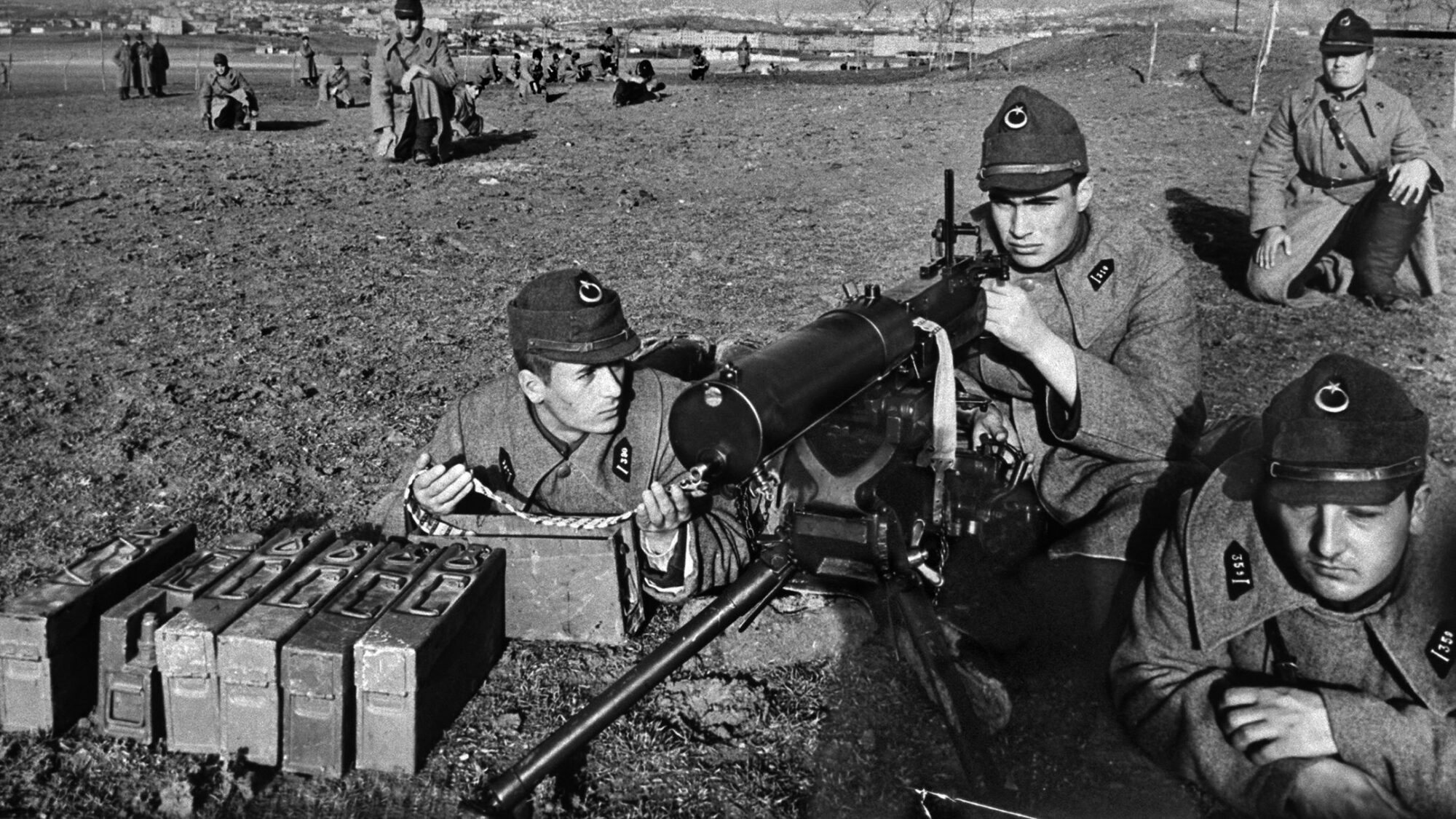
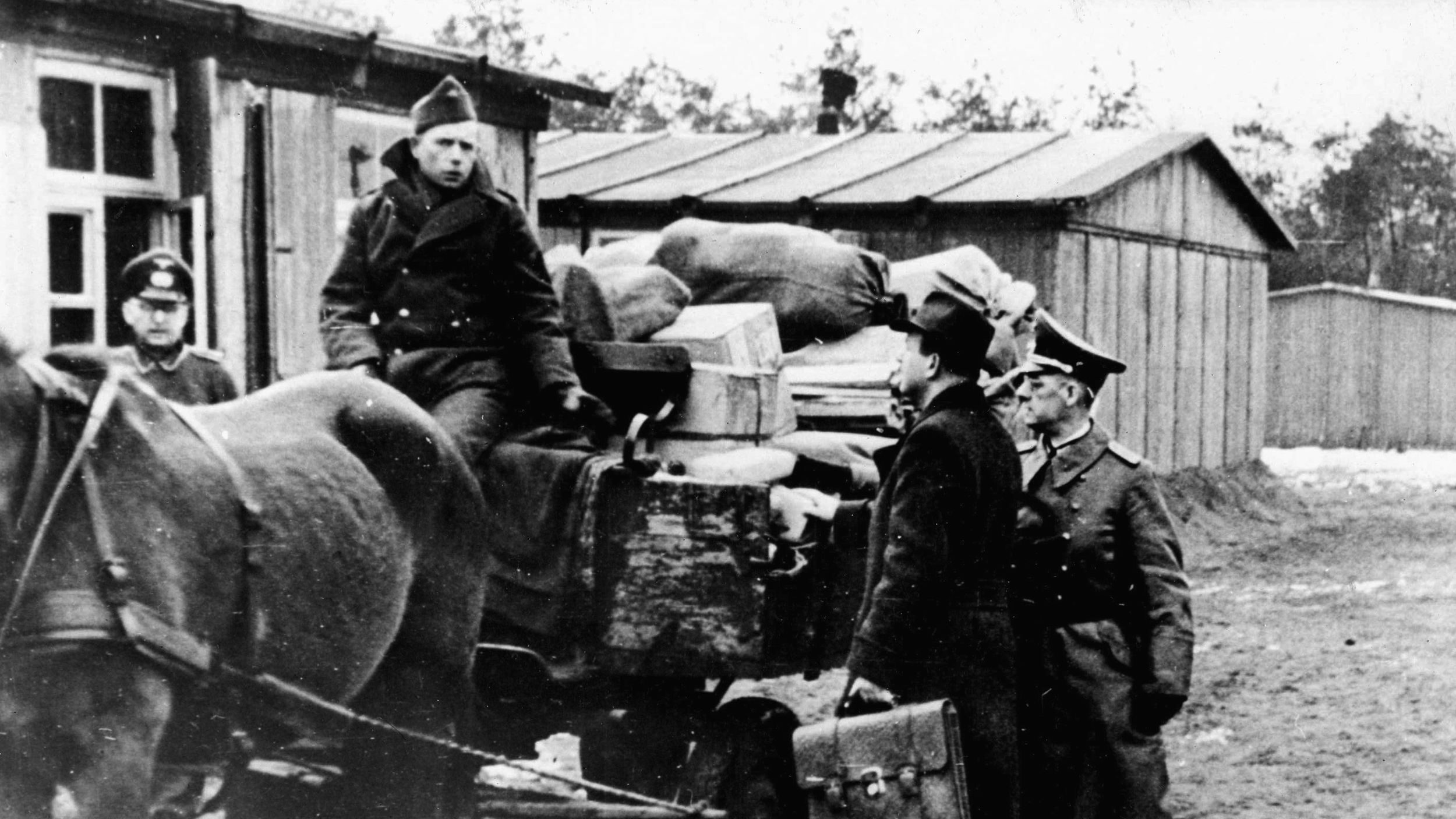
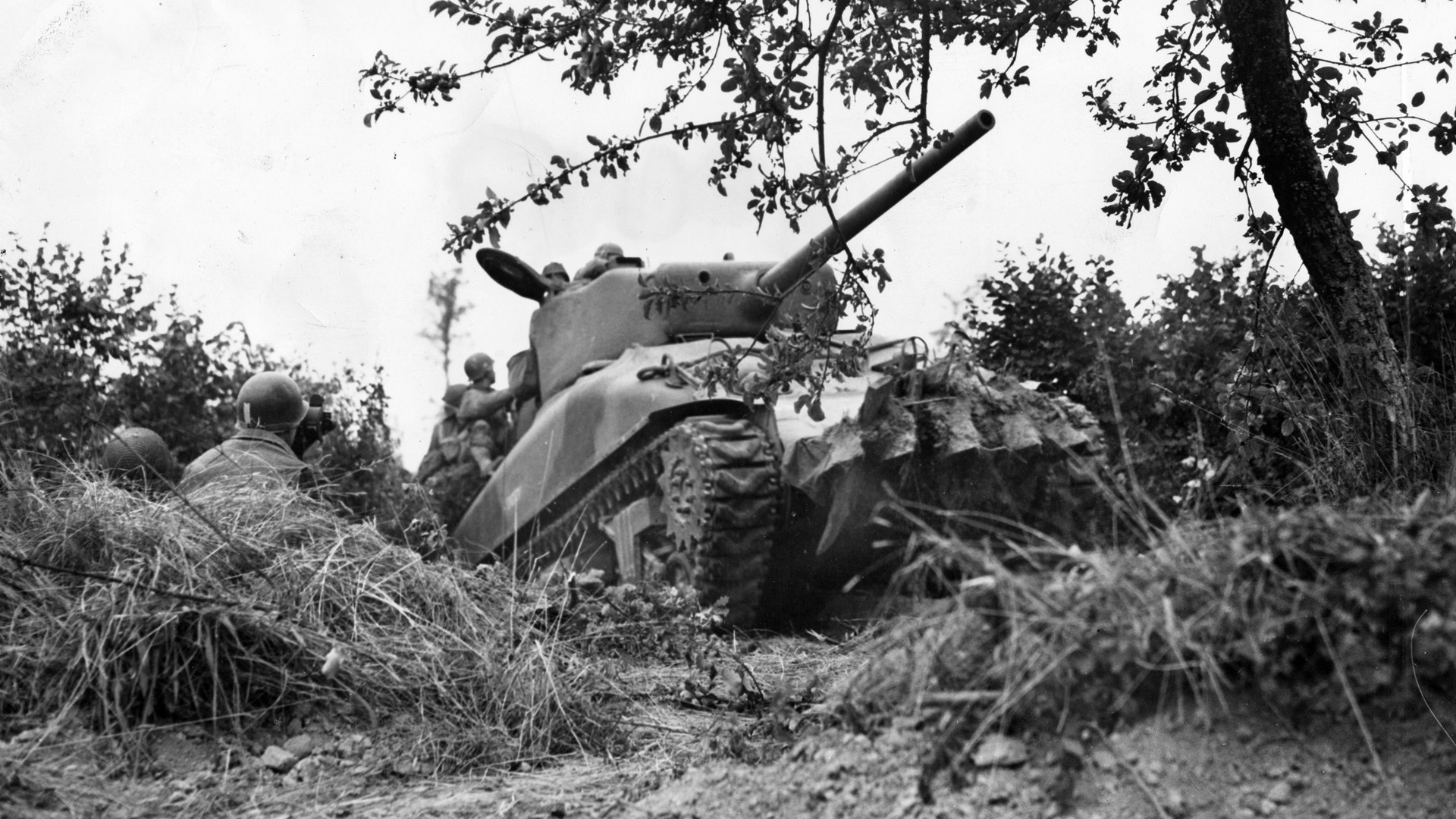
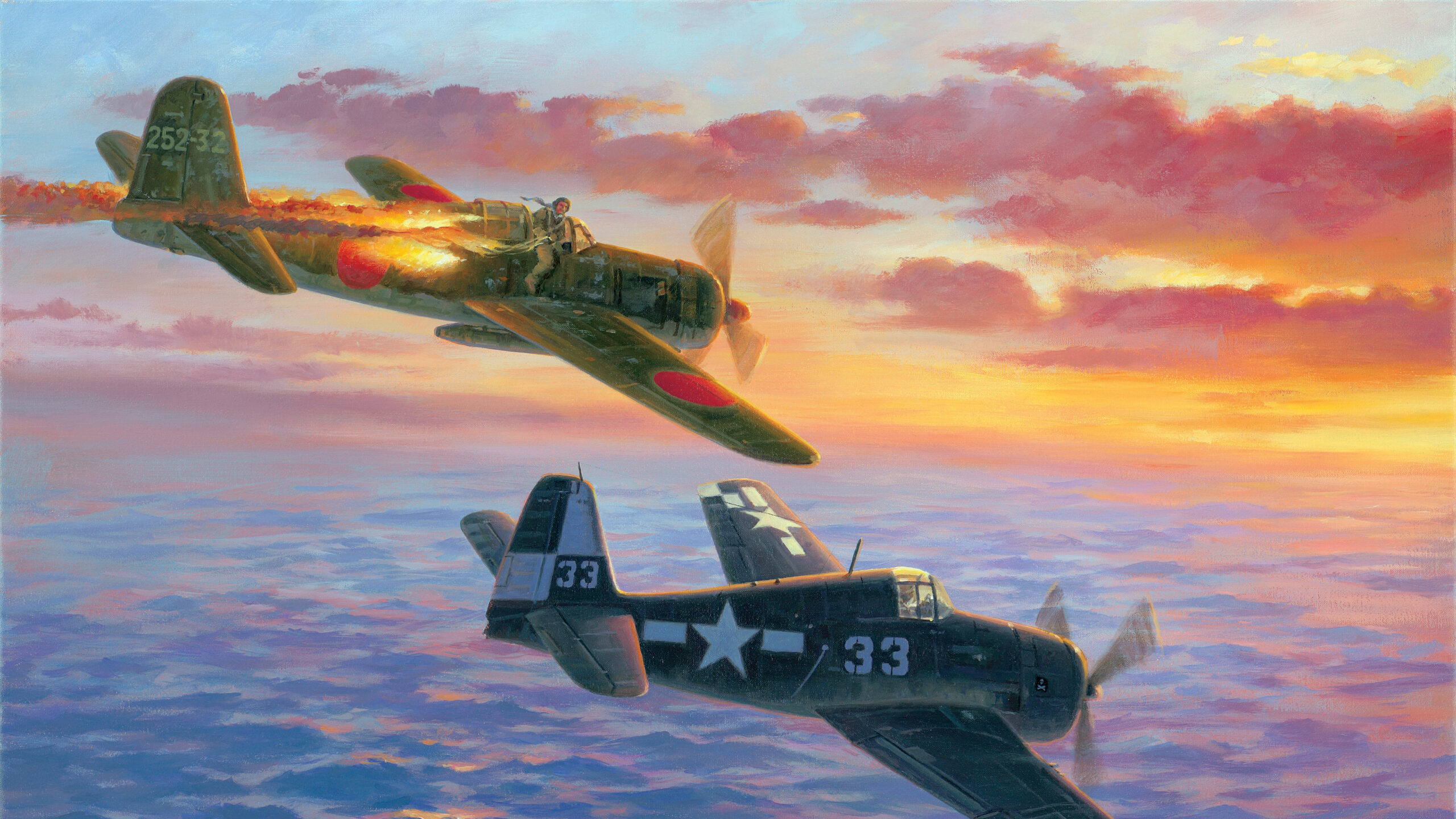
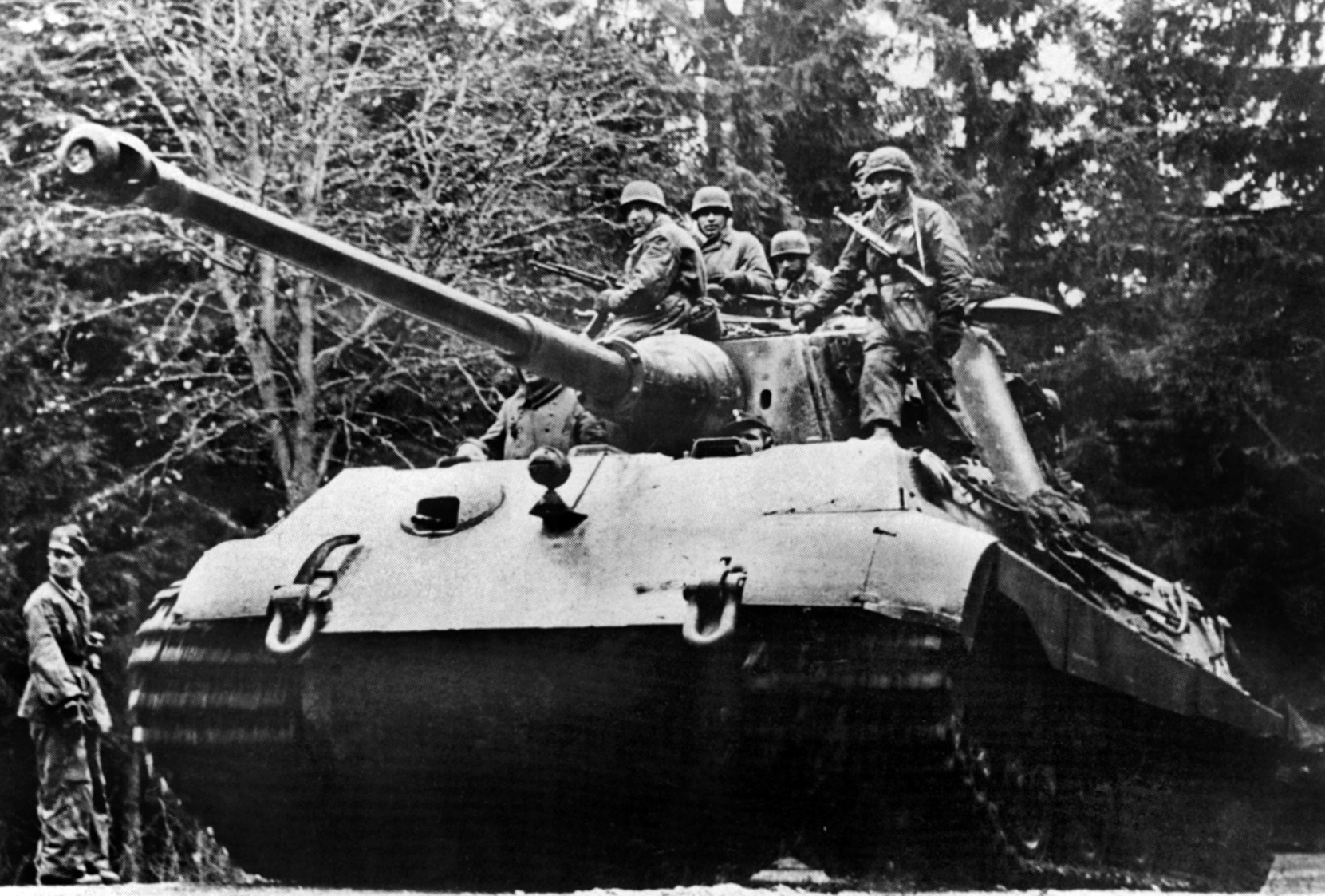
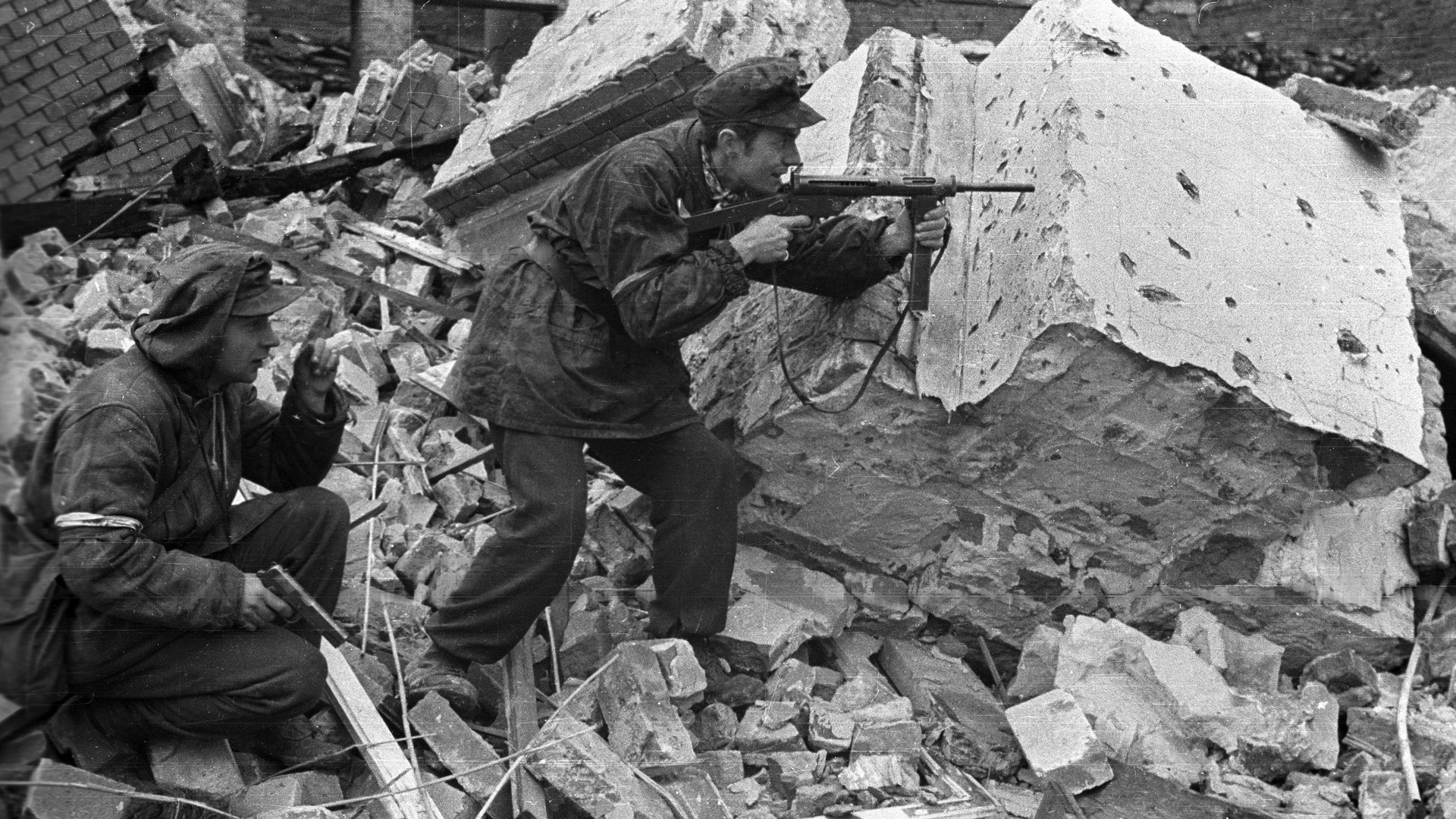
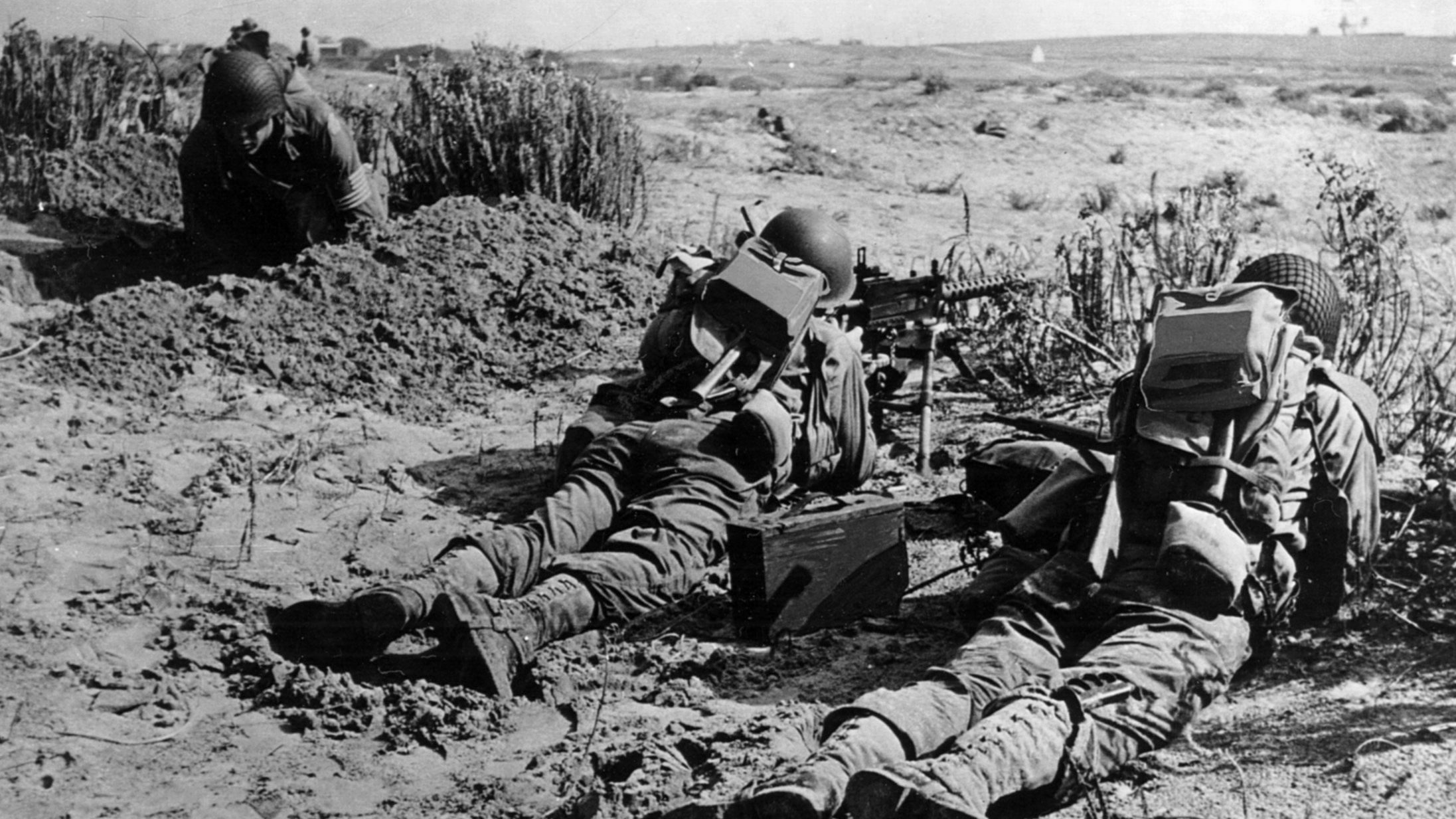

Good politics of Turkey…
Seems somewhat along the lines of Salazar in Portugal and Franco in Spain. Whatever their sympathies, none of these three countries was in any position to participate in a wide European war.
Ah, that “soft underbelly” thing that obsessed Churchill.